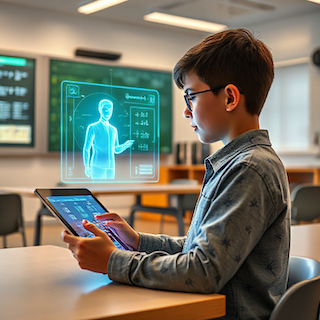Applications of AI
Artificial Intelligence (AI) has rapidly gained significance in recent years and is now present in many areas of our daily lives, the economy, and science. It enables machines to learn from data, recognize complex patterns, and make autonomous decisions – with far-reaching impacts on nearly every aspect of life.
Medicine and Healthcare
AI is transforming healthcare by enabling earlier and more accurate diagnoses, personalizing treatments, and streamlining hospital workflows. Advanced image recognition systems can detect tumors, fractures, and rare diseases in X-rays or MRIs, sometimes surpassing human experts. AI-powered platforms like IBM Watson Health and Google Health analyze vast medical literature and patient histories to suggest tailored treatment plans. In telemedicine, virtual assistants evaluate symptoms and triage patients remotely, making healthcare more accessible. Robotics and AI help in surgery, rehabilitation, and elderly care. In the future, we expect AI to play a greater role in drug discovery, continuous patient monitoring via wearables, and even predicting disease outbreaks.
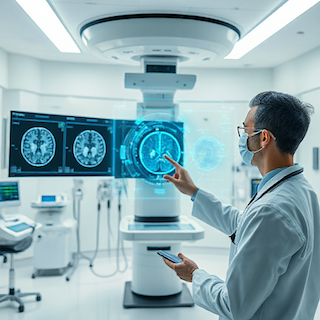
Industry and Manufacturing
In modern manufacturing, AI powers "smart factories" where machines, sensors, and software collaborate seamlessly. Visual inspection systems use neural networks to spot defects in products at lightning speed, ensuring high quality. Predictive maintenance algorithms analyze sensor data to forecast when machines need servicing, preventing costly breakdowns. Companies like Siemens, Bosch, and GE leverage AI to optimize supply chains, manage inventory, and automate complex assembly lines. Robotics guided by AI can adapt to new tasks and environments. Looking ahead, AI is expected to enable fully autonomous production environments, greater customization, and real-time optimization of resources.
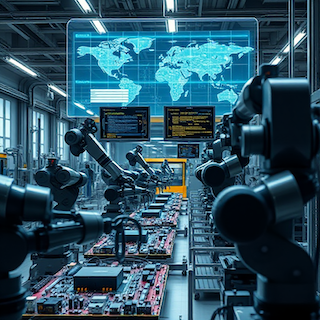
Transport and Mobility
The transport sector is being revolutionized by AI-driven technologies. Autonomous vehicles from companies like Tesla and Waymo use AI to interpret sensor data, recognize road signs, avoid obstacles, and make instant driving decisions. AI systems optimize logistics, manage fleets, and reduce fuel consumption. In public transport, smart algorithms predict passenger flows and adjust schedules dynamically. AI helps analyze traffic patterns to reduce congestion and emissions, and intelligent traffic lights adapt in real time. In the future, AI may enable seamless multimodal mobility, drone deliveries, and fully autonomous trucks and ships, making transport safer and more efficient.
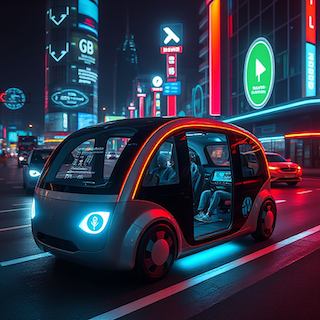
Everyday Life and Consumer Experience
AI is deeply embedded in our daily routines. Voice assistants like Amazon Alexa, Google Assistant, and Apple's Siri interpret spoken commands, manage smart homes, and answer questions. Recommendation engines on Netflix, Spotify, and Amazon analyze our preferences to suggest movies, music, and products tailored to our tastes. AI filters news feeds, detects spam, and flags inappropriate content on social media. In smartphones, AI enhances photos, translates languages in real time, and powers personal health tracking. As AI advances, we can expect even more personalized digital experiences, smarter home automation, and improved accessibility for people with disabilities.
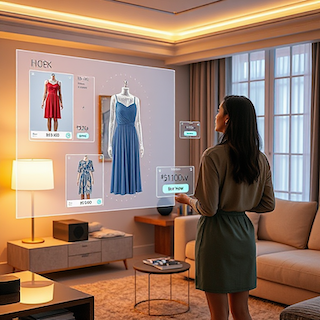
Agriculture
AI is helping farmers produce more food with fewer resources and less environmental impact. Machine vision systems mounted on tractors identify weeds and apply herbicides only where needed, reducing chemical use. Drones equipped with cameras and sensors survey fields, and AI analyzes the images to detect crop diseases, assess plant health, and predict yields. Apps like Plantix enable farmers to diagnose plant problems using their smartphones. Automated irrigation systems use AI to optimize water usage. In the future, AI is expected to enable autonomous farm machinery, precision breeding, and real-time market analysis, making agriculture more sustainable and resilient.
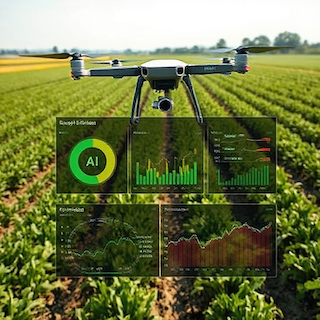
Education
AI-powered educational tools personalize learning, adapt content to individual students, and provide instant feedback. Adaptive learning platforms like Knewton and Smart Sparrow adjust lessons to each learner's pace and knowledge gaps. AI can automatically grade assignments, freeing up teachers for more meaningful interactions. Intelligent tutoring systems offer targeted support, while chatbots answer student questions and help manage large online courses. Predictive analytics alert educators to students at risk of falling behind. In the future, AI could enable even more immersive and interactive learning experiences, virtual classrooms with real-time language translation, and tools that foster creativity and critical thinking.
These examples show the versatility of AI today. It offers enormous potential for increasing efficiency, improving quality, and personalizing experiences. At the same time, issues such as transparency, data protection, fairness, and control must be addressed to ensure responsible use.
← Back to homepage